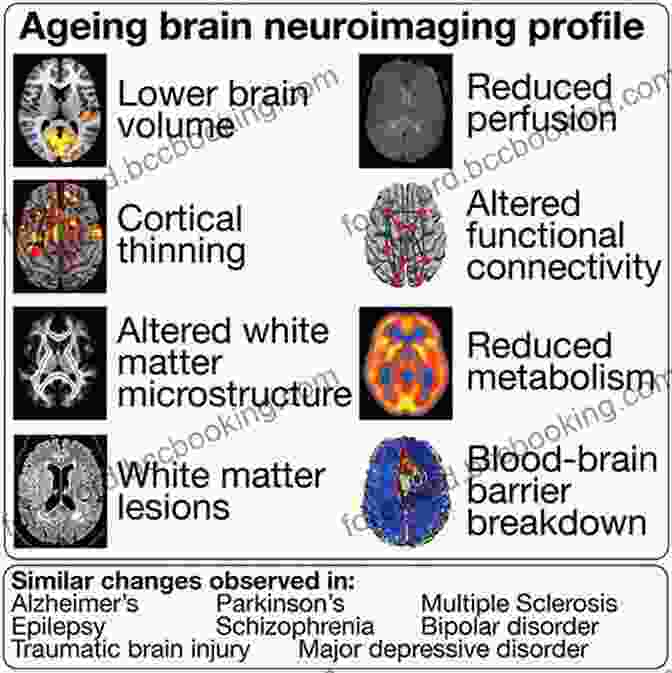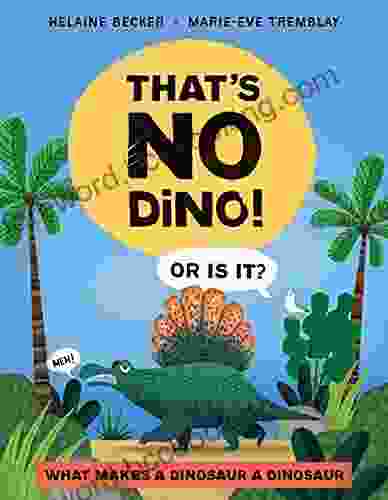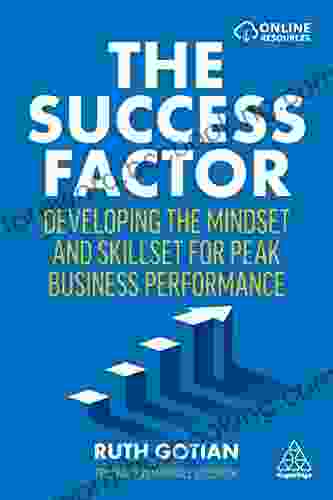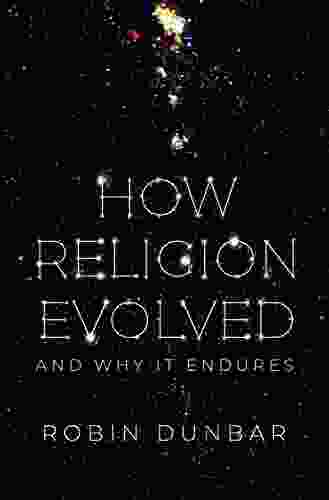Unveiling the Evolutionary Journey of Religion: Insights from Neuroscience, Anthropology, and Psychology

Religion has been an integral part of human civilization for millennia, shaping our beliefs, values, and behaviors in profound ways. But where did religion come from? And why does it continue to endure in the modern world, despite the rise of scientific rationalism and secularization?
In their groundbreaking book, 'How Religion Evolved And Why It Endures," Dr. Pascal Boyer and Dr. Joseph Henrich offer a comprehensive and thought-provoking exploration of the origins and evolution of religion. Drawing upon the latest research in neuroscience, anthropology, and psychology, they present a compelling case that religion is a natural and adaptive phenomenon, rooted in human nature and serving vital cognitive, social, and cultural functions.
4.2 out of 5
| Language | : | English |
| File size | : | 4478 KB |
| Text-to-Speech | : | Enabled |
| Screen Reader | : | Supported |
| Enhanced typesetting | : | Enabled |
| Word Wise | : | Enabled |
| Print length | : | 325 pages |
| Lending | : | Enabled |
The Cognitive Origins of Religion
Boyer and Henrich argue that religion emerged as a byproduct of our evolved cognitive capacities for detecting agency, purpose, and meaning in the world around us. Through a process of "hyperactive agency detection," our brains are wired to perceive intentional agents behind natural phenomena, even when they are not present. This tendency, coupled with our natural inclination to seek explanations for the unknown, led to the development of religious beliefs and practices.
Studies in neuroimaging have revealed that religious experiences activate specific brain regions, such as the temporoparietal junction, which is involved in processing social interactions and mentalizing (attributing mental states to others). This suggests that religion taps into deep-seated cognitive mechanisms that are fundamental to human sociality.

The Social and Cultural Functions of Religion
Beyond its cognitive origins, religion also serves important social and cultural functions. Henrich, a prominent anthropologist, emphasizes the role of religion in promoting cooperation and maintaining social Free Download. By establishing moral codes and providing a shared sense of purpose and identity, religion can help to bind individuals together and reduce conflict within groups.
In addition, religion has played a significant role in human cultural evolution. Religious rituals, symbols, and narratives provide a framework for interpreting the world and transmitting cultural knowledge across generations. They can also serve as a source of inspiration, creativity, and artistic expression.
The Adaptive Nature of Religion
Boyer and Henrich argue that religion is an adaptive phenomenon that has provided evolutionary advantages to humans over time. By offering explanations for the unknown, regulating social behavior, and providing comfort and meaning in the face of adversity, religion has contributed to the survival and prosperity of our species.
For example, studies have shown that religious belief and practice can promote mental and physical well-being, reduce stress and anxiety, and enhance immune function. In addition, religion can provide a sense of community and belonging, which has been linked to lower rates of depression and social isolation.
The Future of Religion
So, what does the future hold for religion? Boyer and Henrich believe that religion will continue to evolve and adapt to changing social and cultural conditions. While secularization may have weakened the influence of traditional religious institutions in some parts of the world, the human need for meaning, purpose, and connection suggests that religion will likely persist in some form or another.
The book concludes with a thought-provoking discussion of the implications of religious evolution for the future of humanity. Boyer and Henrich argue that understanding the cognitive and adaptive underpinnings of religion can help us to address some of the challenges facing the world today, such as religious extremism, violence, and polarization.
'How Religion Evolved And Why It Endures' is a tour de force that offers a comprehensive and nuanced understanding of the origins, evolution, and enduring power of religion. Drawing upon the latest scientific research, Boyer and Henrich present a compelling case that religion is a natural and adaptive phenomenon, rooted in human nature and serving vital cognitive, social, and cultural functions.
This book is essential reading for anyone interested in the intersection of religion, science, and human evolution. It provides a thought-provoking and timely examination of one of the most fundamental aspects of human existence.
To learn more about 'How Religion Evolved And Why It Endures,' visit the official website at www.howreligionevolved.org.
4.2 out of 5
| Language | : | English |
| File size | : | 4478 KB |
| Text-to-Speech | : | Enabled |
| Screen Reader | : | Supported |
| Enhanced typesetting | : | Enabled |
| Word Wise | : | Enabled |
| Print length | : | 325 pages |
| Lending | : | Enabled |
Do you want to contribute by writing guest posts on this blog?
Please contact us and send us a resume of previous articles that you have written.
 Book
Book Novel
Novel Page
Page Chapter
Chapter Text
Text Story
Story Genre
Genre Reader
Reader Library
Library Paperback
Paperback E-book
E-book Magazine
Magazine Newspaper
Newspaper Paragraph
Paragraph Sentence
Sentence Bookmark
Bookmark Shelf
Shelf Glossary
Glossary Bibliography
Bibliography Foreword
Foreword Preface
Preface Synopsis
Synopsis Annotation
Annotation Footnote
Footnote Manuscript
Manuscript Scroll
Scroll Codex
Codex Tome
Tome Bestseller
Bestseller Classics
Classics Library card
Library card Narrative
Narrative Biography
Biography Autobiography
Autobiography Memoir
Memoir Reference
Reference Encyclopedia
Encyclopedia Sebastian Smee
Sebastian Smee Howard Jackson
Howard Jackson Herbert B Mayo
Herbert B Mayo Raeanne Thayne
Raeanne Thayne Hemanta Sundaray
Hemanta Sundaray Jeffrey B Little
Jeffrey B Little James R Chiles
James R Chiles Helen Cathcart
Helen Cathcart Hattie Gossett
Hattie Gossett Samantha Bell
Samantha Bell Meathead Goldwyn
Meathead Goldwyn Hourly History
Hourly History Henri Michaux
Henri Michaux Hiroaki Samura
Hiroaki Samura Maggie Nelson
Maggie Nelson Kristin Beale
Kristin Beale Kim Staflund
Kim Staflund Jia Jiang
Jia Jiang John James Santangelo Phd
John James Santangelo Phd Shoshana Levin Fox
Shoshana Levin Fox
Light bulbAdvertise smarter! Our strategic ad space ensures maximum exposure. Reserve your spot today!

 Junichiro TanizakiEmbark on a Heartfelt Journey with "The Crooked Little Road to Semi Ever...
Junichiro TanizakiEmbark on a Heartfelt Journey with "The Crooked Little Road to Semi Ever...
 Darren NelsonOr Is It What Makes Dinosaur Dinosaur? A Must-Read for Dinosaur Enthusiasts...
Darren NelsonOr Is It What Makes Dinosaur Dinosaur? A Must-Read for Dinosaur Enthusiasts... Mike HayesFollow ·8.9k
Mike HayesFollow ·8.9k Cade SimmonsFollow ·15.5k
Cade SimmonsFollow ·15.5k William WordsworthFollow ·14.1k
William WordsworthFollow ·14.1k Jack ButlerFollow ·15.6k
Jack ButlerFollow ·15.6k Emilio CoxFollow ·11.4k
Emilio CoxFollow ·11.4k Lucas ReedFollow ·6.6k
Lucas ReedFollow ·6.6k Theodore MitchellFollow ·3.8k
Theodore MitchellFollow ·3.8k Andy HayesFollow ·11k
Andy HayesFollow ·11k

 Fabian Mitchell
Fabian MitchellUnleash the Adventure: Family Fun in the Black Hills
Nestled amidst the rolling hills...

 Alfred Ross
Alfred RossUnleashing Peak Business Performance: A Journey of...
In today's rapidly evolving business...

 Fernando Bell
Fernando BellEmbrace the Prophetic Voice of Howard Zinn: A Journey...
As we navigate the complexities of our...

 Jonathan Franzen
Jonathan FranzenChildren of the Arctic: A Literary Expedition to the...
In the annals of...

 Branson Carter
Branson CarterYou Can Be Neutral on a Moving Train: A Transformative...
Welcome, dear reader,...
4.2 out of 5
| Language | : | English |
| File size | : | 4478 KB |
| Text-to-Speech | : | Enabled |
| Screen Reader | : | Supported |
| Enhanced typesetting | : | Enabled |
| Word Wise | : | Enabled |
| Print length | : | 325 pages |
| Lending | : | Enabled |










